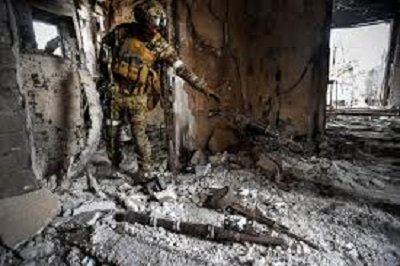Ukraine’s Official had recorded more than 134,000 War crimes !!!
By S K Singh: Editor-In-Chief

WAR-CRIME-REPORT:- When Ukraine liberated territory from Russian forces, the harm perpetrated by the occupiers became plain to see. Occupying troops had committed atrocities in great numbers. By the spring of 2024, Ukraine’s General Prosecutor had recorded more than 134,000 war crimes.
At the same time, the Ukrainian government has sought to find ways to punish its own nationals who collaborated with occupying forces. In the aftermath of the full-scale invasion, the Rada quickly passed a series of laws to dissuade Ukrainians from collaborating.

While it is understandable that the government took a hard stance, its approach spells legal trouble for almost anyone who interacted with the Russians, even if just to survive the occupation. It also risks overloading the judicial system and depriving the Ukrainian state of workers as it wages war and simultaneously tries to revive liberated areas.
The victims of atrocity crimes face serious challenges when it comes to achieving accountability. On one hand, the state has put a premium on judicial accountability for what are surely legitimate reasons – including both a sincere desire to obtain justice for the victims and a wish to make clear to domestic and international audiences that Russian invasion and occupation exposes Ukrainian civilians to grave atrocities.

There are incentives for victims to pursue accountability, including that those who win cases will be first in line for compensation payments for war crimes or damage they suffered once funds become available through the Ukrainian state. On the other hand, the path to achieving judicial redress for victims of atrocity crimes is strewn with obstacles.
There are basic structural challenges. The Ukrainian judicial system lacks the specialists and legal personnel to hear war crimes cases expeditiously. Even if the authorities could deal with these cases quickly, few of those responsible would see jail time, not least because most of the Russians involved are probably no longer in Ukraine. As time passes, memories will fade and evidence become more difficult to gather, frustrating survivors’ prospects of legal recourse and compensation payments.

Gathering testimony, the first step in building legal cases, itself poses huge challenges. A lack of adequate victim care and witness protection discourages many survivors from telling their story and leads them to distrust law enforcement. Human rights lawyers say some survivors, particularly women, do not report possible war crimes because they downplay what happened to them or blame themselves for ending up in danger.
Women who suffered sexual violence at the hands of Russian troops may face stigma from their communities and investigators may be suspicious they profited from sexual relationships with Russians. Even if victims want to give testimony, they may have trouble figuring out how to do so. Most people do not know what legal support they are entitled to.
Finding seasoned practitioners to guide them is hard. A politician who regularly travels to a front-line district centre told ICG there was “not a single social worker left” there.
Source:ICG








